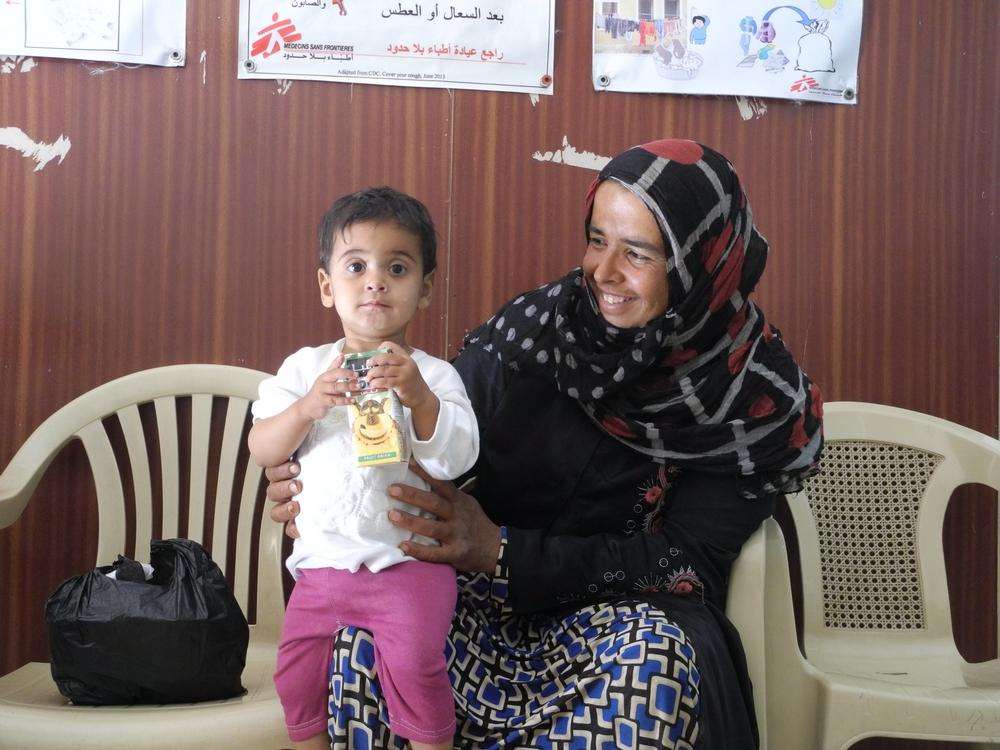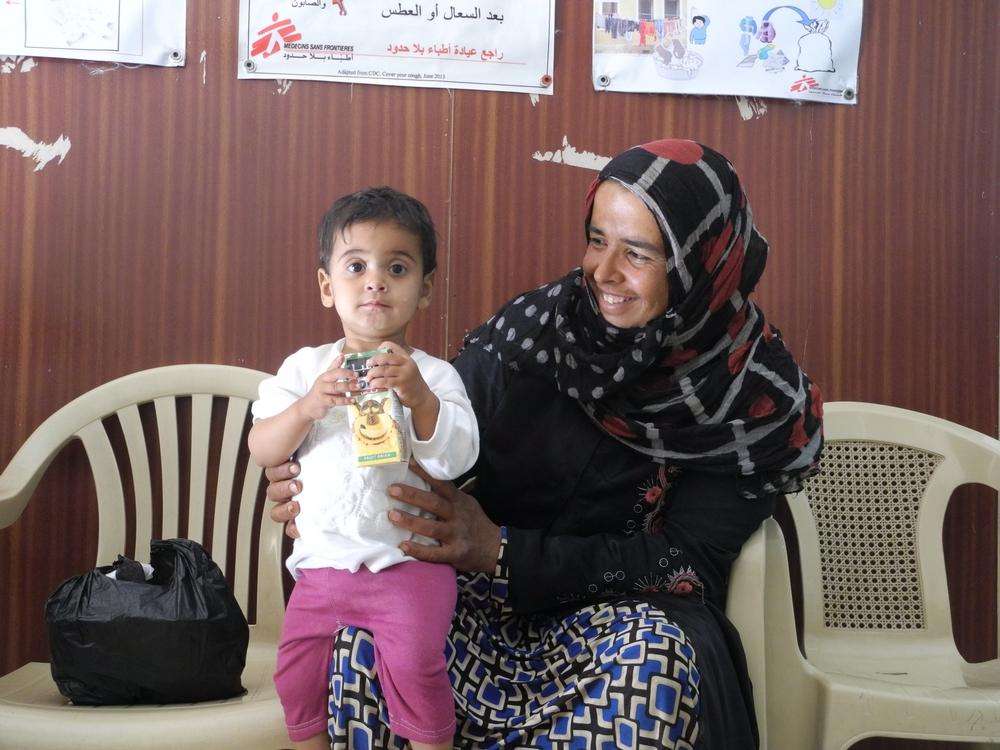It’s been less than five minutes since the Doctors Without Borders/Médecins Sans Frontières (MSF) health promotion team stepped inside the tent of a Syrian refugee family, and they already have drops of perspiration trickling down their faces.
The last few weeks have brought unprecedented temperatures to much of the Middle East. In Lebanon’s Bekaa Valley, home to at least 410,000 refugees from neighboring Syria, temperatures have reached as high as 42 degrees Celsius (107 degrees Fahrenheit). And the heat isn’t just bringing discomfort; it’s bringing sickness.
Dire Conditions
Many Syrians in the Bekaa live in unfinished buildings, or in one of more than 900 informal tented settlements haphazardly erected in fields or along the roadside. The flimsy plastic sheeting that make up the walls and roofs in the settlements offers little respite from the blazing sun. Dust blows in and out of these homes, and the air is thick with humidity and flies. Access to clean water is limited, and sewage often leaks into the areas surrounding the tents, where children play.
At MSF’s four clinics across the Bekaa, more than half of the patients currently seeking treatment are suffering illnesses resulting from the hot weather. “In summer, we always see a lot of respiratory tract infections, gastro-intestinal problems, such as diarrhea, and dermatological problems,” says Dr. Bilal Qassem, a doctor at MSF’s clinic in Baalbek.
“These morbidities are all directly linked to the poor living conditions our patients endure. We’ve seen a 20 percent increase in the usual summer morbidities compared to last year, possibly because of the recent heat wave.”
In June and July, upper and lower respiratory infections counted for over 42 percent of the diseases treated by MSF in the Bekaa. In July, watery diarrhea and gastro-intestinal problems amounted to 23 percent of the diseases treated.
Skin diseases like scabies are also common, due to limited access to clean water, and overcrowding in tents. As the health promotion team prepares to leave the ITS, a man rushes over to show them red welts covering his belly and arms, the telltale sign of scabies. “Because of the cramped living conditions, when one person gets sick, everybody else gets sick too,” says Dr. Wael Harb, head of MSF's medical activities in the Bekaa.
“We provide medicine and our health promotion teams explain how to reduce the spread of infection, but we can’t change the underlying cause of these problems, which are poor hygiene and precarious living conditions,” he adds.
Tackling Health Challenges
As the seasons change, so too will the challenges for refugees. “The summer is hard, yes, but winter is much, much worse,” says Leila*, a Syrian mother of five living in a tent settlement near Majdal Anjar. “In winter you can’t keep your children warm, the plastic sheeting always rips, and you have to spend your days shoveling snow off the roof.”
*Name changed to protect anonymity
MSF first started working in Lebanon in 1976, providing medical assistance in response to the outbreak of civil war. It currently provides primary health care, including treatment for acute and chronic diseases, in Tripoli, the Bekaa Valley, Beirut, and Sidon.
MSF also operates mother and child services in Arsal and the Shatila Palestinian refugee camp. With the exception of the chronic services, MSF’s services are open to Syrian refugees, vulnerable Lebanese, Lebanese returnees from Syria, and Palestinian refugees from Syria. MSF treats all Syrian refugees, irrespective of their registration status with UN High Commissioner for Refugees (UNHCR).





